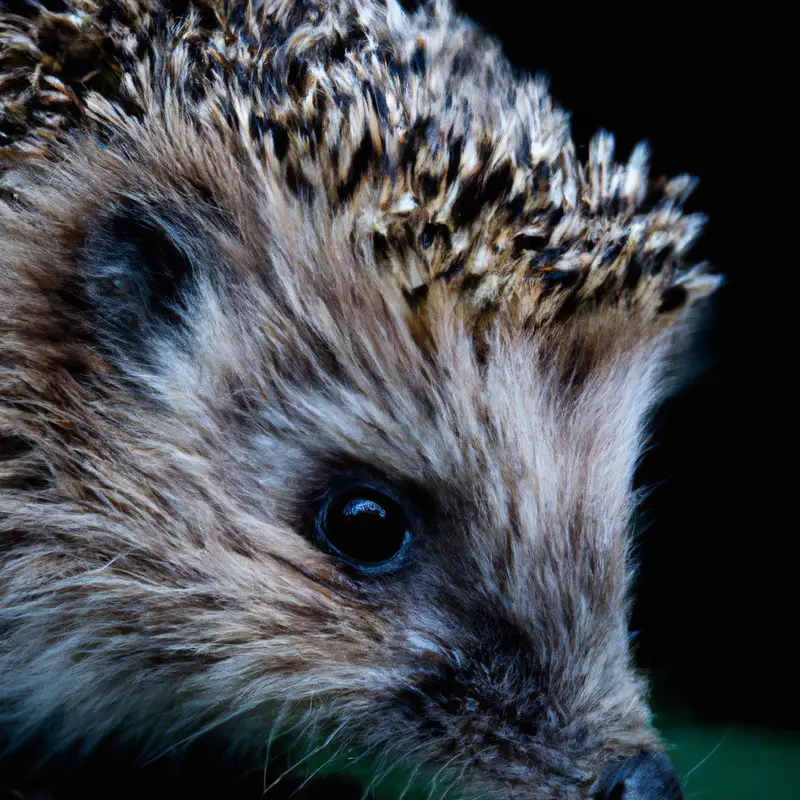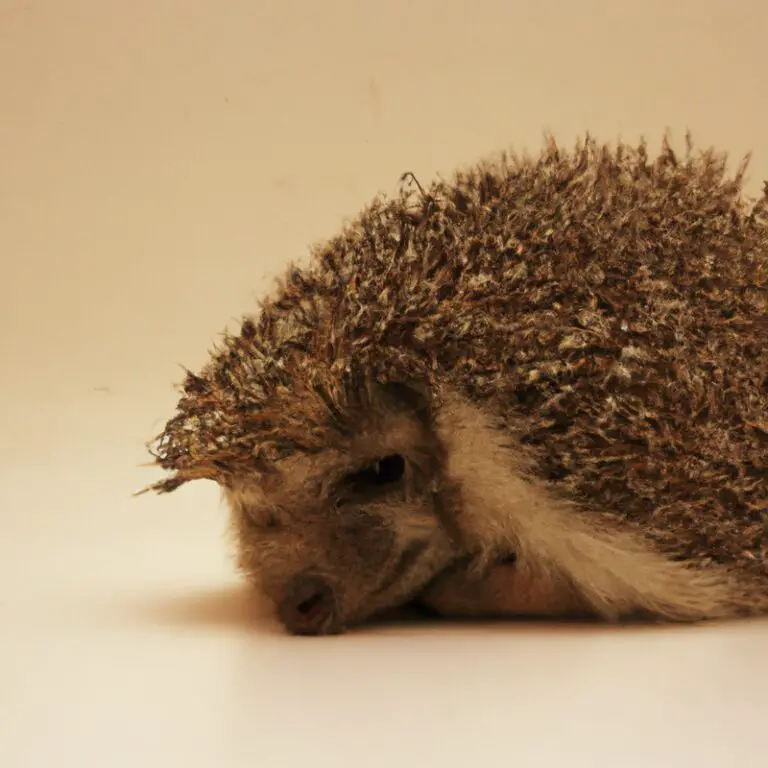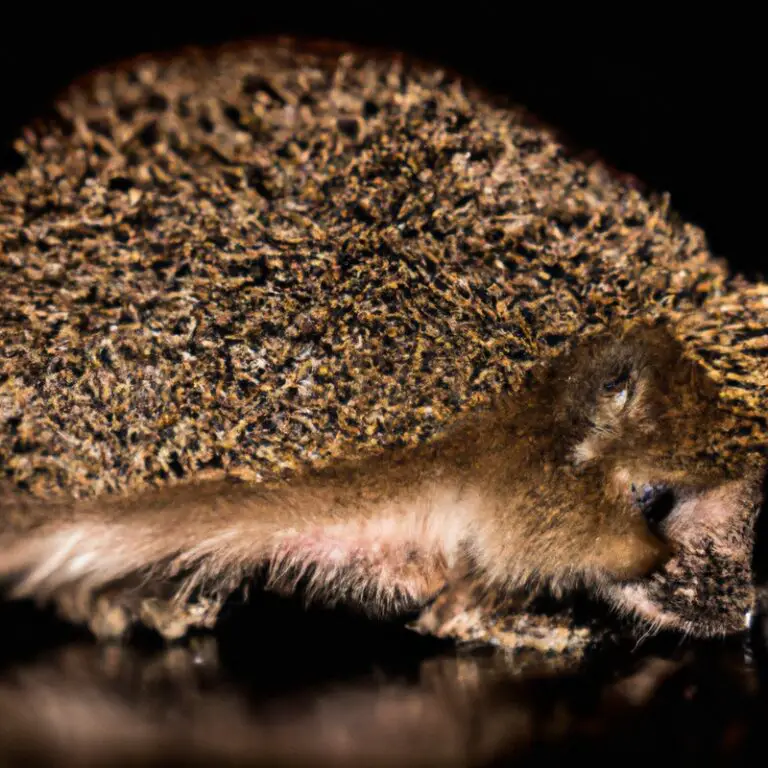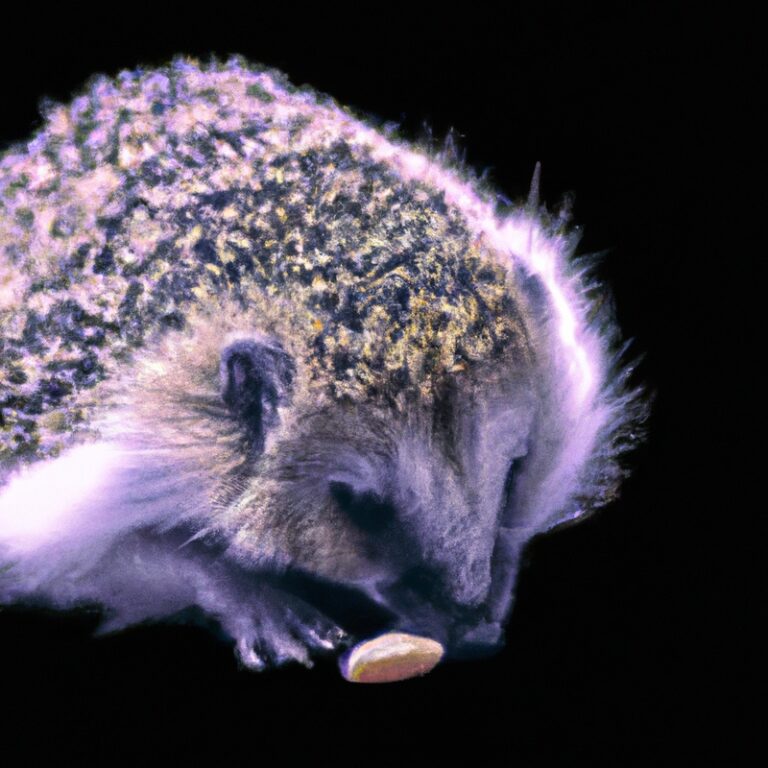What Are The Benefits Of Hedgehogs In Gardens?
Key Takeaways:
- Hedgehogs in gardens help control pests and reduce the need for chemical pesticides.
- They improve soil health by aerating and fertilizing it with their droppings.
- Hedgehogs are natural garden allies and can be attracted with suitable habitats like log piles and food sources like insects and slugs.
- Encouraging hedgehog presence in gardens can contribute to a balanced ecosystem and biodiversity conservation.
Have you ever considered the idea of having a hedgehog as a guest in your garden? These adorable creatures not only bring a sense of wonder and charm to your outdoor space, but they also offer a multitude of benefits.
From their natural pest control abilities to their role in creating a healthy ecosystem, hedgehogs are a valuable asset to any garden.
By attracting these spiky little visitors, you can experience the joy of wildlife in your own backyard while reaping the rewards of a thriving and harmonious environment. In this blog, we’ll explore the incredible benefits that hedgehogs bring to gardens and discover why they are such welcomed residents.
So, let’s dive in and uncover the secrets of these delightful garden guardians.
| Benefits of Hedgehogs in Gardens |
| Hedgehogs eat insects, slugs, and snails, helping to control their populations in the garden. |
| They can provide natural pest control, reducing the need for harmful chemicals or pesticides. |
| Hedgehogs also eat fallen fruits and berries, preventing them from rotting and attracting pests. |
| They help aerate the soil as they move around, improving the overall health of the garden. |
| Hedgehogs can be a delight to watch and attract nature enthusiasts to the garden. |
| They are generally harmless and do not pose a threat to humans or pets. |
| Hedgehogs may also deter other garden intruders, such as rodents, due to their spiky appearance. |
Benefits of Hedgehogs in Gardens
Hedgehogs provide natural pest control, helping to keep garden pests like slugs and snails in check.
They also contribute to the prevention of garden damage and attract other wildlife, while fertilizing the soil.
Natural Pest Control
Natural pest control is one of the key benefits of having hedgehogs in gardens.
These cute creatures love to eat insects, slugs, and snails, which are common garden pests.
Hedgehogs can help keep these pests in check, reducing the need for chemical pesticides.
By providing a safe and welcoming habitat for hedgehogs, you can naturally control pest populations in your garden and promote a healthier ecosystem.
So, next time you spot a hedgehog roaming around, know that it’s contributing to your garden’s pest control efforts.
Slug and Snail Control
Slug and snail control can be important in gardens to protect your plants from damage. Here are a few methods you can try:
- Handpicking: Simply removing slugs and snails from your plants by hand can be effective, especially in smaller gardens.
- Copper barriers: Creating barriers using copper tape or copper wire can deter slugs and snails as they don’t like to touch it.
- Beer traps: Burying containers filled with beer can attract and drown slugs and snails.
- Natural predators: Encouraging predators like frogs, toads, and birds can help control the slug and snail population in your garden.
Keep in mind that slug and snail control is an ongoing process and may require a combination of these methods for best results.
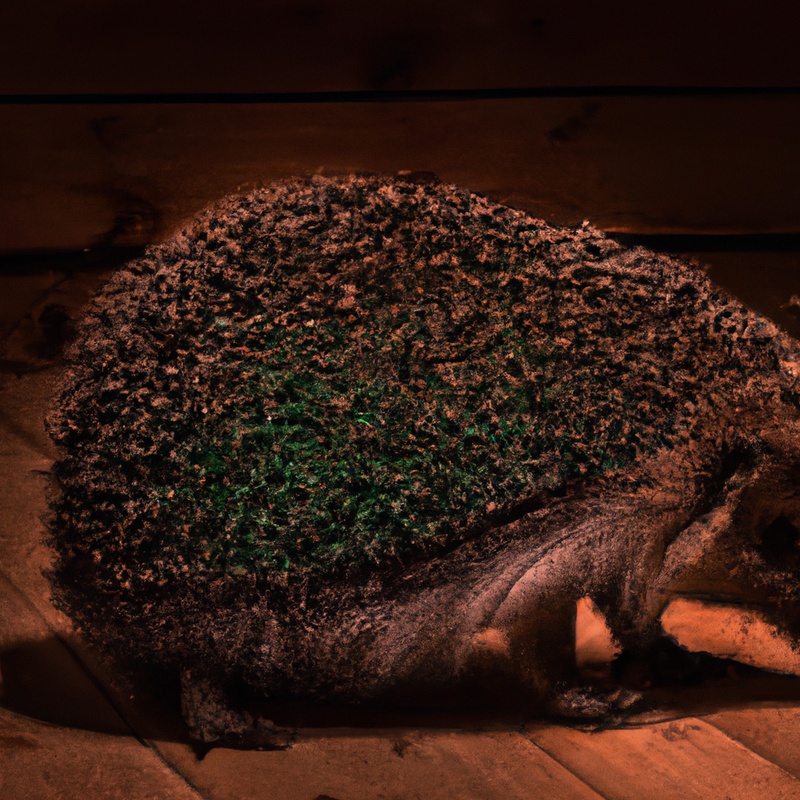
Prevention of Garden Damage
Prevention of Garden Damage To prevent damage to your garden, there are a few simple steps you can take. Firstly, consider installing a hedgehog house or creating a hedgehog-friendly area in your garden.
Hedgehogs are natural predators of garden pests like slugs and snails, so attracting them can help protect your plants.
Secondly, avoid using pesticides and chemicals in your garden. These can harm hedgehogs and other beneficial wildlife.
Instead, opt for organic methods to control pests.
Thirdly, create barriers around vulnerable plants using chicken wire or mesh to prevent hedgehogs from digging or trampling them. Additionally, make sure there are no holes or gaps in your garden fences that hedgehogs can squeeze through.
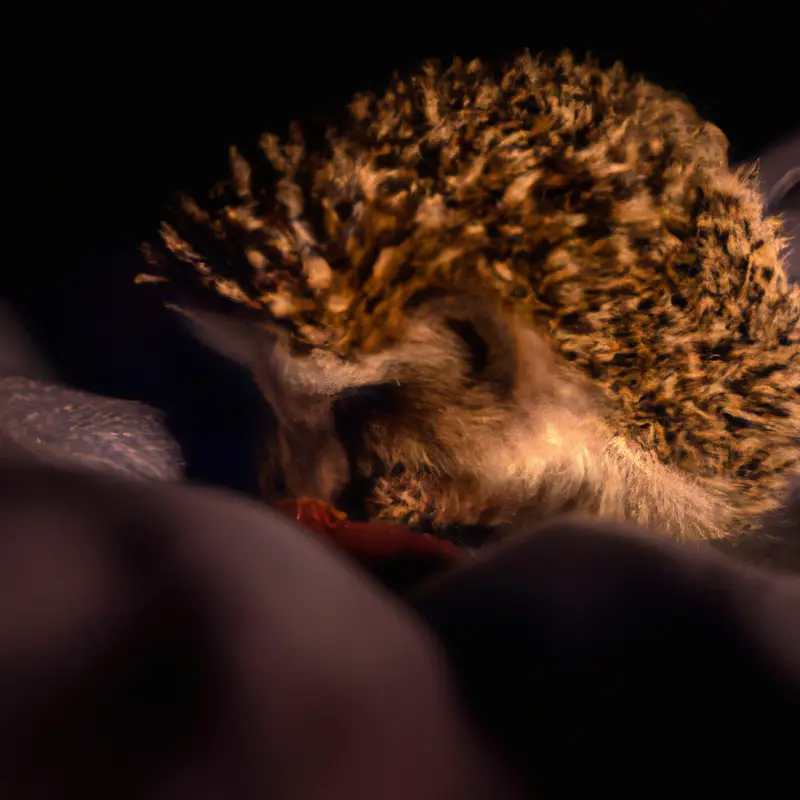
Attraction of Other Wildlife
Hedgehogs in gardens can help attract other wildlife too.
Their presence can create a habitat that is inviting to various creatures.
For example, their spiky presence can deter predators, allowing smaller animals like birds and insects to thrive.
Additionally, hedgehogs are nocturnal foragers, stirring up the soil and creating opportunities for earthworms and other soil-dwelling organisms.
Overall, having hedgehogs around can contribute to a more biodiverse and lively garden ecosystem.
Fertilization of Soil
Fertilization of soil is one of the key benefits of having hedgehogs in your garden.
As they move around, hedgehogs dig and loosen the soil, allowing air and water to penetrate easily.
Additionally, their droppings, known as hedgehog manure, are rich in nutrients that promote plant growth.
This natural fertilization process can enhance the overall health and fertility of your garden soil.
So by welcoming hedgehogs into your garden, you’re not only helping these adorable creatures thrive, but also improving the vitality of your plants.
How Hedgehogs Provide Natural Pest Control
Hedgehogs provide natural pest control through their diet and feeding habits, as well as their effective hunting techniques. These small mammals have a significant impact on pest populations, making them a valuable asset in gardens.
Diet and Feeding Habits
Hedgehogs have a varied diet consisting of insects, worms, snails, slugs, and small amphibians.
They are considered insectivores but are also known to eat fruits, berries, and small mammals on occasion.
Their feeding habits are primarily nocturnal, as they forage for food during the night.
Hedgehogs use their keen sense of smell to locate prey and have strong jaws to crush the shells of snails and insects.
To attract hedgehogs to your garden, it’s helpful to provide a variety of food sources and ensure there is easy access to water.
Hunting Techniques
Hedgehogs have some impressive hunting techniques that make them effective pest controllers in gardens.
They use a combination of their keen sense of smell and hearing to locate prey, such as insects, snails, and slugs.
Once they detect their target, hedgehogs will pounce or use their snout to root around in the soil.
They can detect movements underground and will dig to uncover their prey.
Hedgehogs also have sharp teeth and can use them to chew through shells and tough exoskeletons.
Their hunting techniques help keep gardens free from unwanted pests naturally.
Impact on Pest Population
Hedgehogs have a significant impact on reducing pest populations in gardens.
They play a crucial role in natural pest control by feeding on insects, slugs, and snails, which are common garden pests.
Hedgehogs are particularly effective in controlling snail and slug populations, as these creatures make up a large part of their diet.
By having hedgehogs in your garden, you can help keep pests at bay without relying on harmful chemicals or pesticides.
Hedgehogs and Slug and Snail Control
Hedgehogs play a valuable role in controlling slugs and snails in gardens.
Their appetite for these pests helps prevent damage to plants.
Ecological Role as Predators
Hedgehogs play an important ecological role as predators in gardens. They feed on a variety of pests such as slugs, snails, and insects, helping to naturally control their populations.
By preying on these pests, hedgehogs can reduce the need for chemical pest control methods.
Additionally, their diet includes small vertebrates like frogs and mice, which helps maintain balance in the garden ecosystem. Allowing hedgehogs to roam freely in your garden can be beneficial for both the environment and your plants.
Prevention of Plant Damage
Prevention of Plant Damage is essential for maintaining a healthy garden.
To protect your plants, consider these tips:
- Use natural repellents, such as chili powder or garlic, to deter pests.
- Install physical barriers like fences or netting to keep animals away.
- Regularly inspect and remove any diseased or infested plants to prevent the spread of pests.
- Provide proper watering and nutrients to strengthen plants and make them less susceptible to damage.
- Rotate crops and practice companion planting to confuse pests and reduce their impact.
- Keep your garden clean and tidy to eliminate hiding places for pests.
- Regularly prune and trim plants to promote healthy growth and prevent overcrowding.
Decreased Reliance on Pesticides
Decreasing reliance on pesticides is beneficial for both the environment and your garden. Instead of relying solely on chemical sprays, there are alternative methods you can try.
One option is to encourage natural predators, such as birds and beneficial insects, to control pests naturally.
Additionally, practicing good garden hygiene, like removing dead plants and weeds, can minimize pest habitats. Using organic fertilizers and companion planting can also deter pests without the need for pesticides.
These alternatives can help create a healthier and more sustainable garden environment.
Preventing Garden Damage with Hedgehogs
Garden damage can be prevented by allowing hedgehogs to roam freely in your garden.
Deterrence of Other Wildlife
Deterrence of Other Wildlife: Hedgehogs can help deter other wildlife from your garden. Their spiky quills act as a natural defense, keeping away animals like slugs, snails, and even small rodents.
Hedgehogs are known to eat these pests, thereby reducing their population in your garden.
The scent of hedgehogs can also discourage larger animals like foxes and badgers from entering your garden. By providing a safe habitat for hedgehogs, you can help keep unwanted wildlife at bay and maintain a harmonious garden environment.
Habitat Creation and Protection
Creating and protecting a suitable habitat for hedgehogs is key to supporting their population and ensuring their well-being in your garden. Here are some important factors to consider:
- Provide multiple hiding places: Hedgehogs need sheltered spots to rest and hide from predators. This can be achieved by leaving patches of long grass, creating log piles, or installing hedgehog houses.
- Provide food and water: Leave out bowls of fresh water and consider providing supplementary food, such as cat or dog food (not fish-based, to help hedgehogs in times of scarcity.
- Avoid harmful chemicals: Pesticides and slug pellets can be toxic to hedgehogs and their prey. Opt for natural methods to control pests in your garden, such as encouraging beneficial insects or using organic alternatives.
- Create safe access: Hedgehogs can struggle to navigate garden fences, so consider creating small gaps or “hedgehog highways” in your boundaries to enable them to move freely between gardens.
- Remove hazards: Clear away litter, garden netting, and any other potential entanglement risks that could harm hedgehogs.
By taking these simple steps, you can create a welcoming environment for hedgehogs and contribute to the conservation of these beloved creatures.
Reducing Digging and Burrowing
Reducing digging and burrowing in your garden can help prevent damage. Here are some tips:
- Use wire mesh: Place wire mesh beneath the soil surface in areas where digging is a problem. This will discourage hedgehogs from burrowing.
- Provide alternative habitats: Create a designated area in your garden with brush piles or log piles for hedgehogs to use as a shelter. This can divert their attention away from your flower beds.
- Deterring smells: Hedgehogs dislike strong scents like vinegar or citrus. Spraying these scents around your garden can help deter them from digging.
- Remove attractants: Remove any sources of food or water that might be attracting hedgehogs to your garden. This can reduce their motivation to dig.
Remember, hedgehogs are beneficial creatures, so it’s important to find a balance between protecting your garden and providing a suitable habitat for them.
Hedgehogs as Wildlife Magnets
Hedgehogs attract a diverse range of wildlife to your garden, creating a natural and thriving habitat.
Creating a Healthy Ecosystem
Creating a healthy ecosystem is vital for the well-being of our environment. It is important to maintain a diverse range of plant and animal species, as they all contribute to the balance of the ecosystem.
By providing food, water, and shelter for wildlife, you are helping to support a thriving ecosystem.
Avoid the use of chemical pesticides and opt for natural alternatives to protect the ecosystem from harmful substances. Plant native vegetation to attract a variety of pollinators and create habitats for different animals.
Additionally, conserving water and reducing waste can also contribute to a healthier ecosystem.
Attracting Beneficial Insects and Birds
Attracting beneficial insects and birds to your garden is a great way to create a harmonious environment for your plants.
Here are a few simple steps you can take:
- Plant native flowers and shrubs that provide nectar and pollen for bees, butterflies, and other insects.
- Install bird feeders and bird baths to attract a variety of bird species.
- Avoid using chemical pesticides and opt for natural alternatives like neem oil or manual pest control methods.
- Create habitats like brush piles, rockeries, or insect hotels, which offer shelter and nesting sites for beneficial insects and birds.
These small changes can make a big difference in attracting and supporting a diverse range of beneficial insects and birds in your garden.
Encouraging Biodiversity
Encouraging biodiversity in your garden is important for a healthy ecosystem. You can do this by planting a variety of native plants that attract different species of birds, butterflies, and insects.
Creating water sources like birdbaths or small ponds can also attract amphibians and dragonflies.
Additionally, providing shelter in the form of birdhouses, bat boxes, or log piles can support a wide range of wildlife. By avoiding the use of pesticides and practicing sustainable gardening methods, you can help promote a diverse and thriving natural environment.
Hedgehog Fertilization of Soil
Hedgehogs naturally fertilize the soil through their droppings.
This contributes to nutrient cycling and increases soil fertility, resulting in improved plant growth.
Nutrient Cycling
Nutrient cycling is an essential process in maintaining a healthy ecosystem. It refers to the way nutrients are recycled and reused by plants, animals, and microorganisms.
Here’s how it works:
- Plants take up nutrients from the soil through their roots.
- Animals eat the plants, absorbing the nutrients into their bodies.
- When animals and plants die, decomposers like bacteria and fungi break down their remains, releasing the nutrients back into the soil.
- These nutrients are then available for new plants to absorb, continuing the cycle.
Nutrient cycling helps to ensure that vital elements like nitrogen, phosphorus, and potassium are continually available to support plant growth. This process is crucial for the overall health and productivity of garden ecosystems.
Increased Soil Fertility
Increased soil fertility is one of the key benefits of hedgehogs in gardens. Hedgehogs are natural diggers and as they forage for food, they aerate the soil, allowing better water and nutrient absorption.
Additionally, their droppings act as a natural fertilizer, enriching the soil with nutrients necessary for plant growth.
This increased fertility can lead to healthier and more productive gardens, with plants that thrive and produce abundant harvests. So if you have hedgehogs in your garden, embrace their presence and let them work their magic in improving your soil!
Improving Plant Growth
Improving plant growth is essential for a thriving garden. One way to achieve this is by creating a favorable environment for plants.
Provide adequate sunlight, water, and nutrients for optimal growth.
Using organic fertilizers like compost and manure can also enhance soil fertility. Additionally, regular pruning and removing weeds can prevent competition for resources.
Remember to choose plants that are suited for your climate and soil type.
Finally, practicing good gardening techniques like proper spacing and mulching can help plants reach their full potential.
Frequently Asked Questions
Will hedgehogs damage my garden?
Hedgehogs are unlikely to cause damage to your garden.
They primarily eat insects, slugs, and snails, which can be beneficial to your plants.
In fact, having hedgehogs in your garden can help control pests naturally.
However, they may occasionally dig small holes while searching for food or creating a nest.
Providing them with designated areas, such as a hedgehog house or log pile, can redirect their natural behaviors and minimize any potential impact on your garden.
How can I attract hedgehogs to my garden?
If you want to attract hedgehogs to your garden, there are a few simple things you can do.
Firstly, leave some areas of your garden untouched, like patches of long grass or piles of leaves, as these provide valuable hiding spots for hedgehogs.
Secondly, create a hedgehog-friendly environment by installing a small hedgehog house or shelter and placing it in a quiet, secluded area.
Thirdly, provide a water source, like a shallow dish, and leave out some food, such as wet cat or dog food, or specialized hedgehog food.
These steps can help make your garden more inviting to these adorable creatures.
What should I do if I find a hedgehog in my garden?
If you find a hedgehog in your garden, the best thing to do is to observe it from a distance and let it be.
Hedgehogs are nocturnal creatures that come out at night to search for food, so seeing one during the day is not necessarily a cause for concern.
It may be resting or seeking shelter.
Avoid handling the hedgehog unless it is in immediate danger, such as being stuck somewhere.
Instead, create a safe and welcoming environment in your garden by providing hedgehog-friendly features like a shelter and access to water.
Are hedgehogs dangerous to other wildlife?
Hedgehogs are generally not dangerous to other wildlife.
In fact, they can be beneficial for gardens as they eat slugs, snails, insects, and other pests that can damage plants.
Hedgehogs primarily feed on small invertebrates and do not pose a threat to larger animals.
They are solitary creatures and tend to avoid confrontation.
However, it’s important to provide a safe and secure habitat for hedgehogs to prevent them from becoming a nuisance to other garden inhabitants.
Final Verdict
Hedgehogs offer a multitude of benefits to gardens. Their natural pest control abilities help to keep populations of insects, slugs, and snails in check, which in turn protects plants from damage.
Hedgehogs also deter other wildlife, create habitats, and attract beneficial insects and birds, fostering a healthy and diverse ecosystem.
Furthermore, their presence promotes soil fertility through nutrient cycling, leading to improved plant growth. Encouraging hedgehogs in your garden can create a harmonious and thriving environment while reducing the need for pesticides and other harmful interventions.

